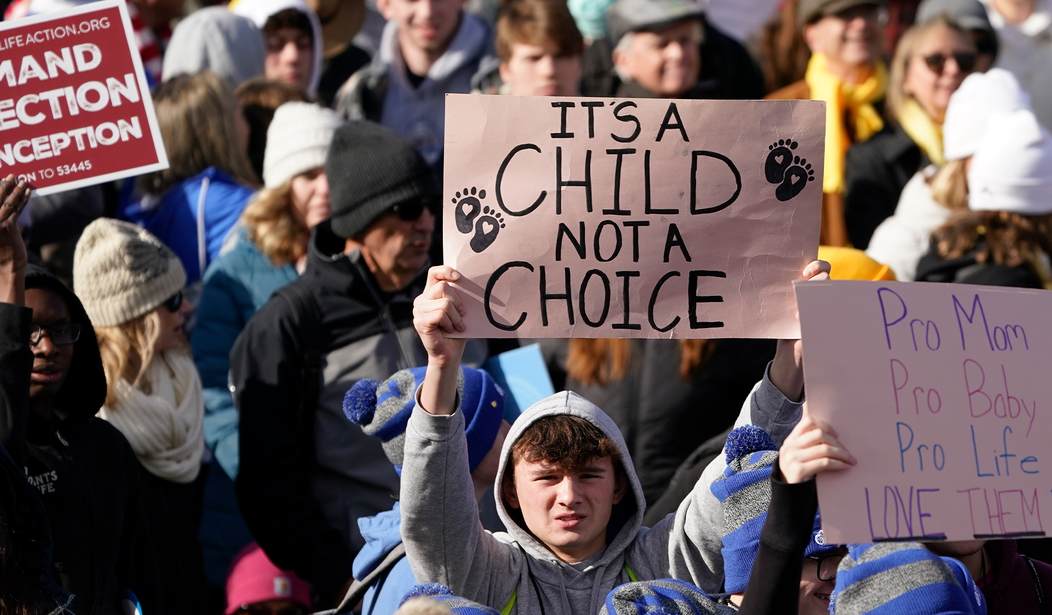On Friday, a federal judge ruled that most provisions of a North Carolina abortion ban could go into effect, including one that prohibits abortions after 12 weeks of pregnancy.
Reportedly, the decision by U.S. District Judge Catherine Eagles, who was nominated by former President Barack Obama, came in response to a legal challenge filed by Planned Parenthood to stop the legislation from taking effect July 1. The abortion provider argued in the lawsuit that some portions of the law were vague and could cause doctors to unintentionally break the law surrounding medication abortions (via the Associated Press):
But the Republican-controlled General Assembly passed legislation this week revising or repealing nearly all of the challenged provisions, making arguments against most of them moot. Among other things, the lawmakers clarified that medication abortions will be legal in nearly all cases through 12 weeks, and that a lawful abortion remains an exception to North Carolina’s fetal homicide statute.
Eagles, who was nominated by former President Barack Obama, had said in court that it would be overly broad to block enforcement of the entire law. Instead, she directed that for at least the next two weeks, the state cannot enforce a rule saying doctors must document the existence of a pregnancy within the uterus before conducting a medication abortion.
[..]
Before Saturday, North Carolina has had a ban on most abortions after 20 weeks. The new rules, developed after the U.S. Supreme Court in June 2022 struck down Roe v. Wade, reduce it to 12 weeks, but add new exceptions through 20 weeks for cases of rape and incest and through 24 weeks for “life-limiting” fetal anomalies. A medical emergency exception also remains in place.
Democratic Gov. Roy Cooper vetoed the abortion law in May, but Republicans overrode him using their veto-proof GOP majorities in both chambers. Cooper then signed on Thursday the clean-up bill, which had overwhelming bipartisan support. Although a strong abortion-rights supporter, Cooper said it was important to clarify the rules because the original measure was “so poorly written that it is causing real uncertainty for doctors and other health care providers.”
Recommended
Late last month, Townhall covered how many states, including North Carolina, began to pass pro-life legislation after the Supreme Court struck down Roe v. Wade. And, earlier this year, In Townhall reported how a state lawmaker in North Carolina switched from the Democratic Party to Republican Party, giving the House a GOP supermajority.
The lawmaker, state Rep. Tricia Cotham, represents a Democrat-leaning district near Charlotte. When she made the decision to join the GOP, she said in a press conference that her party became “unrecognizable.” Cotham, who was previously pro-abortion, revealed that she would be open to enacting restrictions on abortion.
A poll released in May by Susan B. Anthony Pro-Life America found that the majority of North Carolinians support protecting the unborn by at least 12 weeks.
“Twenty-three states including my home state of North Carolina now have laws protecting babies at the point when they feel pain, with the potential of Nebraska and South Carolina soon to follow,” SBA President Marjorie Dannenfelser said of the legislation and the poll results. “Since the Dobbs decision, tens of thousands of lives have been saved and substantially fewer women are experiencing the horrors and harms of abortion. This is thanks to the bold leadership of pro-life leaders in the states: governors, legislators and attorneys general who have prioritized the will of the people in advancing human rights where they live.”

























Join the conversation as a VIP Member